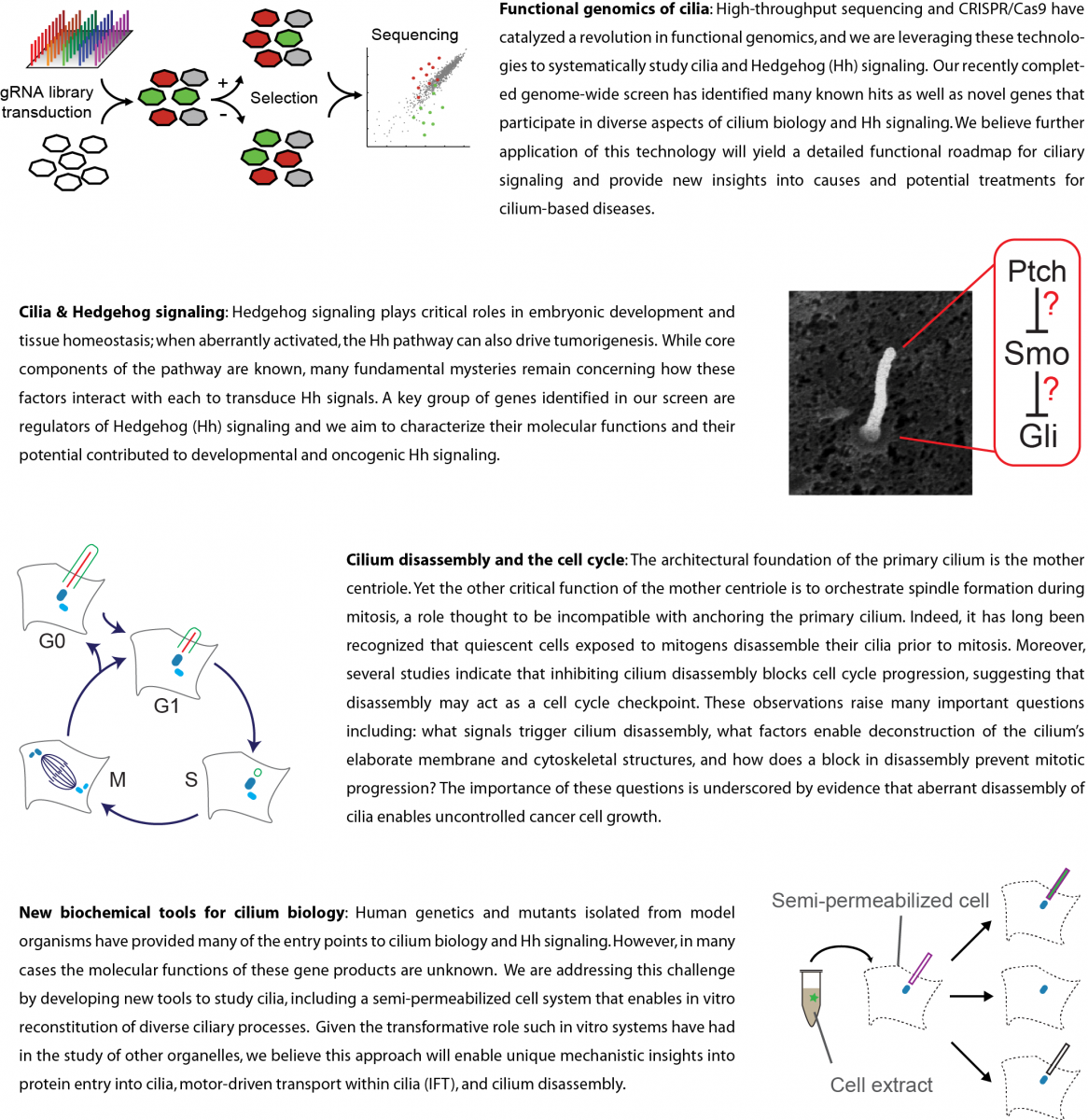Research
The primary cilium is a single micron-scale structure protruding from the surface of almost all cells in the human body. Once thought to be vestigial, the cilium is now known to have key roles in embryonic development, sensory perception, and tissue homeostasis. Consistent with these roles, defects in cilia cause pediatric disorders known as ciliopathies and can promote tumorigenesis.
While these basic properties of cilia are now known, the molecular mechanisms underlying cilium function remain poorly understood. Our group is developing CRISPR-based screening technologies with broad applicability and employing these tools to address a number of central questions regarding primary cilia. These research topics include (1) defining the cellular factors required for assembly and function of primary cilia, (2) elucidating the critical role cilia play in Hedgehog signaling, and (3) investigating cilium disassembly and how this process controls cell cycle progression. More broadly, we are interested in using diverse experimental approaches to tackle mechanistic questions at the intersection of signaling, trafficking, and the cell cycle.

Funding
|
|
 |
 |
 |
